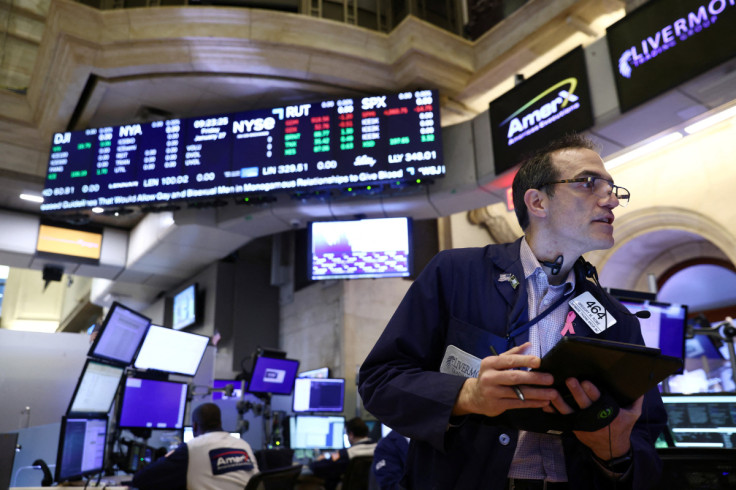Wall St Set To Tumble At Open As Jobs Data Fans Higher Rate Worries

Wall Street's main indexes were set to open lower on Friday after data showed the economy added jobs at a rapid pace last month, feeding into fears that the Federal Reserve could keep interest rates higher for longer in its fight against inflation.
The Labor Department's report for nonfarm payrolls showed 517,000 job additions in January, almost three times expectations of 185,000 additions. The unemployment rate ticked down 3.4% in January from 3.5% in December.
"Whenever we see these big numbers, the fear of the Fed comes back with a vengeance because people are probably afraid that the Fed is going to push things even further than what they have, running the risk of not soft landing, but more of a car crash," said Brian Jacobsen, senior investment strategist for Allspring Global Investments.
After the Fed raised its target rate by 25 basis points on Wednesday, money markets are now expecting the U.S. central bank to hike rates two more times before stopping, with expectations of rates seen peaking at 4.95% by June compared to 4.91% before the data.
This added to the downbeat mood set by disappointing results from megacap growth companies including Apple Inc , Amazon.com Inc and Alphabet Inc, which declined between 2.1% and 6.1% in premarket trading.
Apple forecast another revenue decline at the start of the year, Amazon warned that its operating profit could fall to zero in the current quarter, and Google parent Alphabet missed Wall Street estimates for fourth-quarter results.
The results looked set to snap the rally in U.S. equities in the previous session after Fed Chair Jerome Powell in his remarks after the Wednesday policy meeting referred repeatedly to the "disinflationary" process being underway.
Both the Nasdaq and the S&P 500 posted strong gains on Thursday and touched near five-month highs, while the Dow Jones Industrial Average slipped, dragged down by declines in some big healthcare stocks.
U.S. stocks made a strong start in 2023 after a dismal 2022, with battered technology and related stocks leading the rebound on hopes that the Fed will temper its aggressive rate hikes, in turn alleviating some pressure on equity valuations.
At 8:58 a.m. ET, Dow e-minis were down 212 points, or 0.62%, S&P 500 e-minis were down 51 points, or 1.22%, and Nasdaq 100 e-minis were down 260.75 points, or 2.03%.
Ford Motor Co fell 7.8% on missing quarterly earnings expectations while also warning of a rocky year ahead.
Nearly 70% of half the S&P 500 firms that reported fourth-quarter earnings have topped Wall Street expectations. Analysts now see earnings of S&P 500 firms declining 2.7% for the quarter, according to Refinitiv estimates.
© Copyright Thomson Reuters 2024. All rights reserved.





















